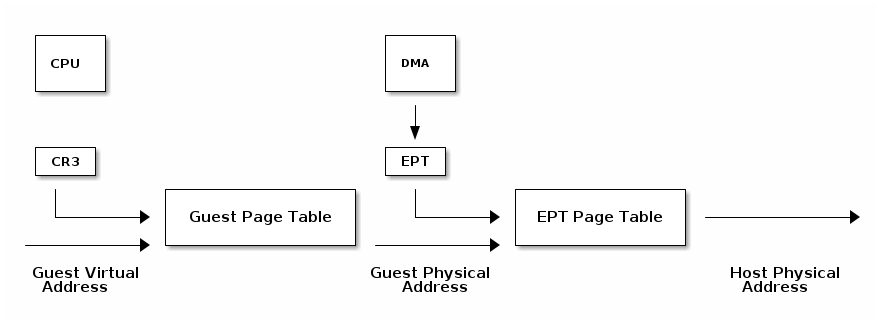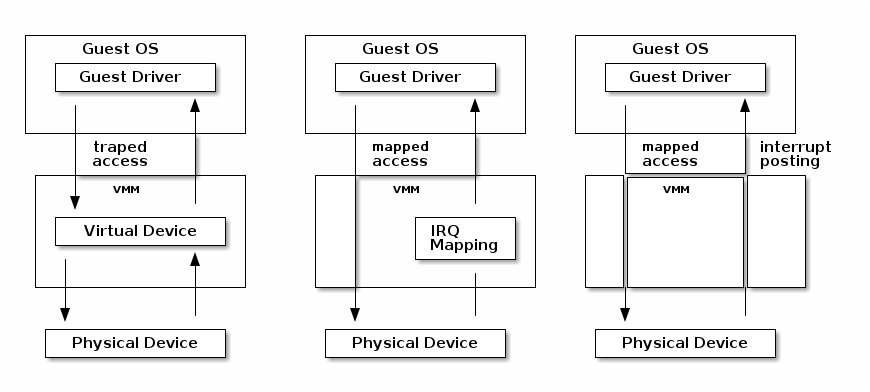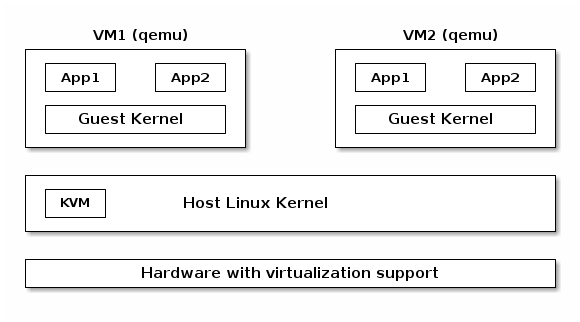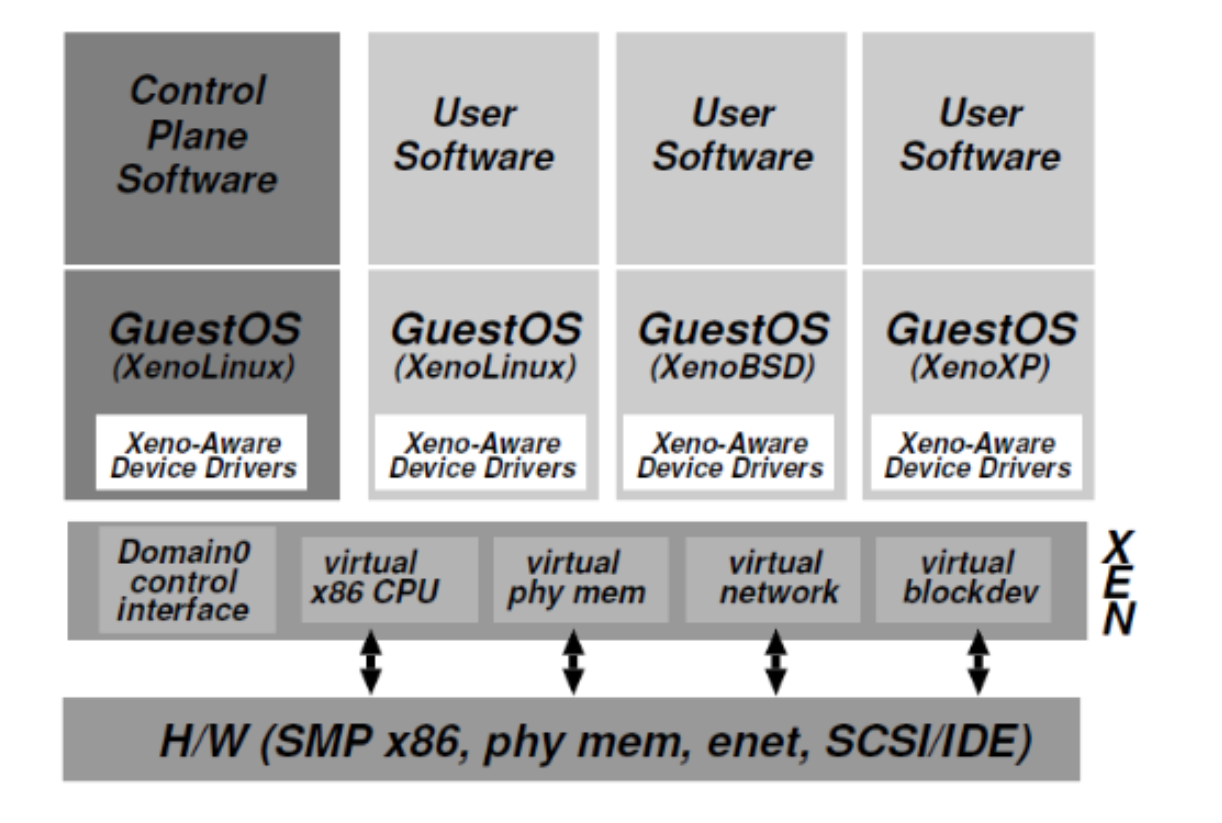Virtualization
- Emulation basics
- Virtualization basics
- Paravirtualization basics
- Hardware support for virtualization
- Overview of the Xen hypervisor
- Overview of the KVM hypervisor
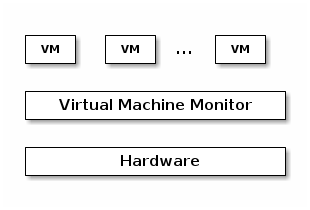
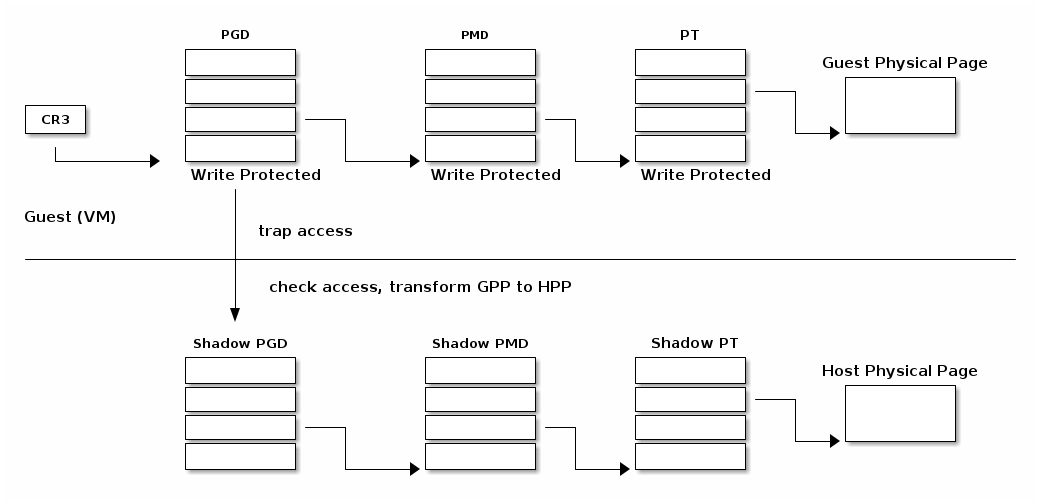
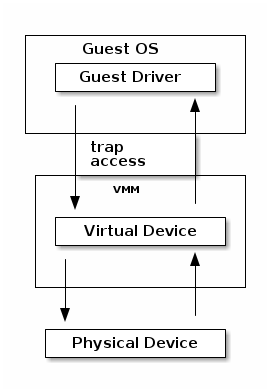
/*
* QEMU model of the UART on the SiFive E300 and U500 series SOCs.
*
* Copyright (c) 2016 Stefan O'Rear
*
* This program is free software; you can redistribute it and/or modify it
* under the terms and conditions of the GNU General Public License,
* version 2 or later, as published by the Free Software Foundation.
*
* This program is distributed in the hope it will be useful, but WITHOUT
* ANY WARRANTY; without even the implied warranty of MERCHANTABILITY or
* FITNESS FOR A PARTICULAR PURPOSE. See the GNU General Public License for
* more details.
*
* You should have received a copy of the GNU General Public License along with
* this program. If not, see <http://www.gnu.org/licenses/>.
*/
#include "qemu/osdep.h"
#include "qapi/error.h"
#include "qemu/log.h"
#include "chardev/char.h"
#include "chardev/char-fe.h"
#include "hw/irq.h"
#include "hw/char/sifive_uart.h"
/*
* Not yet implemented:
*
* Transmit FIFO using "qemu/fifo8.h"
*/
/* Returns the state of the IP (interrupt pending) register */
static uint64_t uart_ip(SiFiveUARTState *s)
{
uint64_t ret = 0;
uint64_t txcnt = SIFIVE_UART_GET_TXCNT(s->txctrl);
uint64_t rxcnt = SIFIVE_UART_GET_RXCNT(s->rxctrl);
if (txcnt != 0) {
ret |= SIFIVE_UART_IP_TXWM;
}
if (s->rx_fifo_len > rxcnt) {
ret |= SIFIVE_UART_IP_RXWM;
}
return ret;
}
static void update_irq(SiFiveUARTState *s)
{
int cond = 0;
if ((s->ie & SIFIVE_UART_IE_TXWM) ||
((s->ie & SIFIVE_UART_IE_RXWM) && s->rx_fifo_len)) {
cond = 1;
}
if (cond) {
qemu_irq_raise(s->irq);
} else {
qemu_irq_lower(s->irq);
}
}
static uint64_t
uart_read(void *opaque, hwaddr addr, unsigned int size)
{
SiFiveUARTState *s = opaque;
unsigned char r;
switch (addr) {
case SIFIVE_UART_RXFIFO:
if (s->rx_fifo_len) {
r = s->rx_fifo[0];
memmove(s->rx_fifo, s->rx_fifo + 1, s->rx_fifo_len - 1);
s->rx_fifo_len--;
qemu_chr_fe_accept_input(&s->chr);
update_irq(s);
return r;
}
return 0x80000000;
case SIFIVE_UART_TXFIFO:
return 0; /* Should check tx fifo */
case SIFIVE_UART_IE:
return s->ie;
case SIFIVE_UART_IP:
return uart_ip(s);
case SIFIVE_UART_TXCTRL:
return s->txctrl;
case SIFIVE_UART_RXCTRL:
return s->rxctrl;
case SIFIVE_UART_DIV:
return s->div;
}
qemu_log_mask(LOG_GUEST_ERROR, "%s: bad read: addr=0x%x\n",
__func__, (int)addr);
return 0;
}
static void
uart_write(void *opaque, hwaddr addr,
uint64_t val64, unsigned int size)
{
SiFiveUARTState *s = opaque;
uint32_t value = val64;
unsigned char ch = value;
switch (addr) {
case SIFIVE_UART_TXFIFO:
qemu_chr_fe_write(&s->chr, &ch, 1);
update_irq(s);
return;
case SIFIVE_UART_IE:
s->ie = val64;
update_irq(s);
return;
case SIFIVE_UART_TXCTRL:
s->txctrl = val64;
return;
case SIFIVE_UART_RXCTRL:
s->rxctrl = val64;
return;
case SIFIVE_UART_DIV:
s->div = val64;
return;
}
qemu_log_mask(LOG_GUEST_ERROR, "%s: bad write: addr=0x%x v=0x%x\n",
__func__, (int)addr, (int)value);
}
static const MemoryRegionOps uart_ops = {
.read = uart_read,
.write = uart_write,
.endianness = DEVICE_NATIVE_ENDIAN,
.valid = {
.min_access_size = 4,
.max_access_size = 4
}
};
static void uart_rx(void *opaque, const uint8_t *buf, int size)
{
SiFiveUARTState *s = opaque;
/* Got a byte. */
if (s->rx_fifo_len >= sizeof(s->rx_fifo)) {
printf("WARNING: UART dropped char.\n");
return;
}
s->rx_fifo[s->rx_fifo_len++] = *buf;
update_irq(s);
}
static int uart_can_rx(void *opaque)
{
SiFiveUARTState *s = opaque;
return s->rx_fifo_len < sizeof(s->rx_fifo);
}
static void uart_event(void *opaque, QEMUChrEvent event)
{
}
static int uart_be_change(void *opaque)
{
SiFiveUARTState *s = opaque;
qemu_chr_fe_set_handlers(&s->chr, uart_can_rx, uart_rx, uart_event,
uart_be_change, s, NULL, true);
return 0;
}
/*
* Create UART device.
*/
SiFiveUARTState *sifive_uart_create(MemoryRegion *address_space, hwaddr base,
Chardev *chr, qemu_irq irq)
{
SiFiveUARTState *s = g_malloc0(sizeof(SiFiveUARTState));
s->irq = irq;
qemu_chr_fe_init(&s->chr, chr, &error_abort);
qemu_chr_fe_set_handlers(&s->chr, uart_can_rx, uart_rx, uart_event,
uart_be_change, s, NULL, true);
memory_region_init_io(&s->mmio, NULL, &uart_ops, s,
TYPE_SIFIVE_UART, SIFIVE_UART_MAX);
memory_region_add_subregion(address_space, base, &s->mmio);
return s;
}

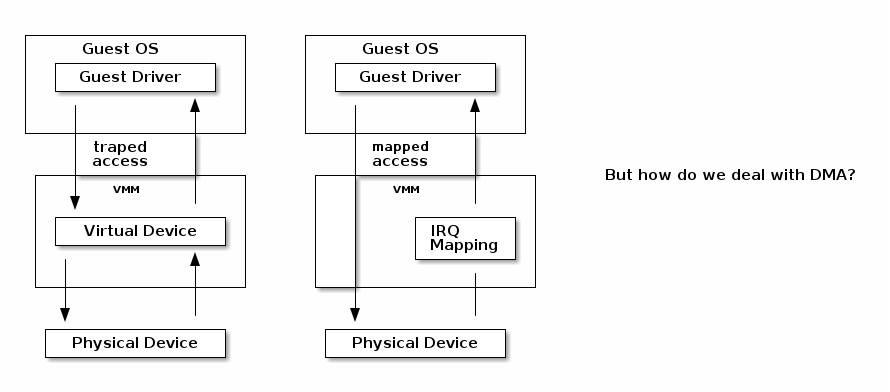
VT-d protects and translates VM physical addresses using an I/O MMU (DMA remaping)
